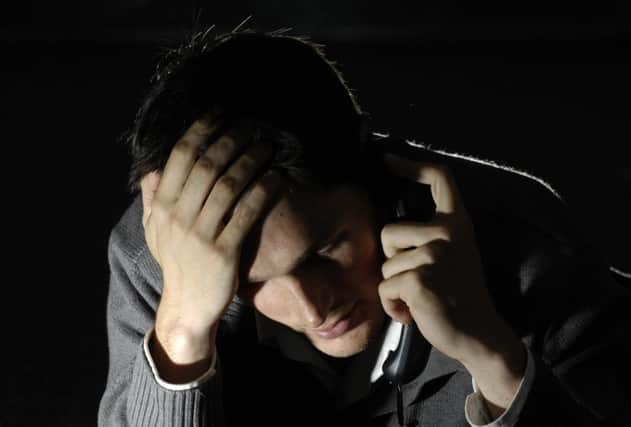‘Divorce Day’ blues? Counselling can help


Much will be have been made this year about “Divorce Day”, the first Monday after the holiday break when hundreds of people pick up the phone to divorce lawyers. Relationships Scotland shares this experience, with January seeing a significant peak in referrals. Many couples will have made a conscious decision in the New Year to seek the help and support of counsellor, having realised over the festive period that something is not right in their relationship. Others will have decided that they want to end their relationship and will begin the difficult process of separation and possibly divorce.
But what are the building blocks of healthy relationships, what makes relationships “work”? And what is it that goes wrong in our relationships that results in so many people breaking up at this time of year?
Advertisement
Hide AdAdvertisement
Hide AdOur counsellors are often asked what makes a good relationship and, whilst this can be a difficult question to answer, there are certain key elements that can have a significant impact on the quality and durability of relationships.
Intimacy: This comes from the weaving together of all the little day-to-day things that couples do together: eating, shopping, and just spending time together.
It is the part of a relationship that is special and unique to each couple. But it’s something that at times we need to pay attention to and make changes if required.
We have to pay attention to our partners and what is happening for them; just as they have to pay attention to us – we need to do simple yet important things such as making time to talk to and listen to one another.
We can neglect this most important aspect of our relationship as we settle into being a couple and our day-to-day lives take over. This can leave gaps where other, less positive, elements can enter relationships, such as the sexual attention of other people.
Trust: Couples trust each other with many things on many different levels, from trusting one another to be there to look after our children, to bringing home the milk or feeding the cat.
Trust is an integral part of any relationship and if that trust is broken or compromised in any way it can have a negative and sometimes damaging effect. If trust is broken then it can lead to feelings of isolation and insecurity and a loss of the sense of a couple being on the “same side”. We often use phrases such as “winning” or “earning” trust, however rebuilding a broken trust can be enormously difficult, but not impossible, thing to do.
Sex: This can be seen as a measure of the success of a relationship. When it’s good, sex can give us a wonderful sense of well-being and when it’s not it can leave us with feelings of shame, anger and rejection. When we feel connected to our partner we often believe that they can read our minds and that they know what we want or desire. However they can’t, and you need to be able to tell your partner what it is that gives you pleasure.
Advertisement
Hide AdAdvertisement
Hide AdIf your sex life isn’t working well, it can be better to focus on the health of your overall relationship together and not view the sexual side of your relationship in isolation.
Affairs: When something invades the intimacy of your relationship it can feel as if it has struck at the very heart of you – your whole world has collapsed around you just as you thought it was all secure.
When you first find out the wound will seem raw and you will feel as if it will never heal.
Affairs though do not always have to mean the end of the relationship. If you and your partner both want the relationship to continue then relationship counselling could help you both to understand why the affair happened and how you can learn and grow from the experience.
Relationships truly are the foundations upon which we build our lives. Decisions about whether to stay together or separate are perhaps some of the most important we will ever make.
However, everyone’s situation is unique and what is right for one couple may not be right for another.
• Stuart Valentine is chief executive of counselling and mediation charity Relationships Scotland, www.relationships-scotland.org.uk or phone 0845 119 2020